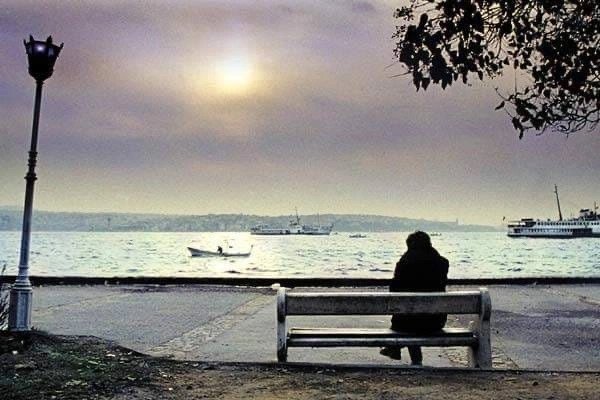Uzak
Originally published in Issue 26 of VHS Tracking (‘Dreams’), a zine of film recommendations edited by Tristan Fidler.
Uzak (Nuri Bilge Ceylan, 2002)
Over the years, filmmakers have called upon dreams to do a lot of their heavy lifting. Dreams are summoned to mend broken hearts. To repair moral compasses. To reveal killers. To guide lovers-in-waiting into each other’s arms. They trigger decisive change by delivering answers to characters in an abstract, but convenient, form. Never mind that in reality we’re rarely capable of remembering the previous night’s dream, let alone acting on it – even if we’d experienced it with such clarity that made it feel like a life-changing event at the time. All of which makes a particular dream sequence in Nuri Bilge Ceylan’s Uzak (2002) so refreshingly true: it lands with all the force of an epiphany, but ultimately promises nothing.
The film follows Mahmut, a middle-aged photographer living in Istanbul, and Yusuf, a recently unemployed younger relative who arrives from their hometown in search of work. Mahmut has allowed Yusuf to crash in his flat, but the pair don’t get along. Though essentially good-natured, Yusuf is seen by his host as little more than a naïve, socially inept annoyance; when his employment prospects turn out to be next to nil, he becomes a burden. Adding to the toxic environment is Mahmut’s dissatisfaction with his own life: he’s limping through the process of a divorce and, despite having once aspired to be an artist like his idol, Andrei Tarkovsky, finds himself stuck in a soulless job photographing tiles. Their shared loneliness and lack of direction notwithstanding, the two men continue to drift further apart while living under the same roof.
The dream sequence in question begins like many actual dreams do, with an impression of mundanity that feels slightly askew. Mahmut sits in front of the TV with glazed eyes, as he does most nights – sometimes to watch Tarkovsky’s films on VHS, sometimes to watch porn – only here there’s an odd breeze running through his hair and nothing playing on the screen other than static. As we try to adjust to the off-kilter atmosphere of the scene, a standing lamp in the room suddenly leans forward of its own accord – then falls, ever so slowly, to the floor. Right before impact, Mahmut wakes with a startle.
In the following scene, Mahmut goes for a stroll by the waterfront, then heads to the airport where he spies on his ex-wife as she leaves with her partner for a new life overseas. When he returns to his flat, Yusuf has packed up and gone. What was the meaning of Mahmut’s dream, and what effect has it had on him? We’ll never know. But as we watch him in the film’s final shot, sitting by the sea and smoking one of the cigarettes Yusuf left behind, he seems no different – and the sky above him appears no less grey.
